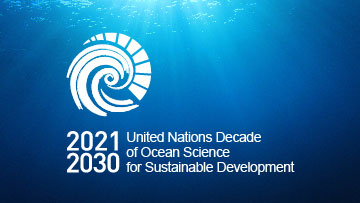Contaminants
Contaminants are chemicals generated by human activity that are known or suspected to enter the environment. Fisheries and Oceans Canada is working to understand the effects of contaminants of concern on our aquatic ecosystems and species.
The Department engages scientists from universities, research organizations, environmental consultants, and other government departments to support research and obtain external expertise on the biological effects of contaminants.
On this page
Priority research areas
The Department is funding research in a number of priority areas.
Contaminants and issues of emerging concern
Contaminants of emerging concern are chemicals found in the environment for which little toxicological information is available. These include pharmaceuticals, chemicals present in personal care products, industrial chemicals and many others, and they are often present in complex mixtures. More research is needed to understand the potential effects on freshwater and marine life.
Microplastics
Microplastics are tiny pieces of plastic less than or equal to 5 millimeters in size and are now consistently found in freshwater and marine environments making them a new contaminant class of concern. They can come from the breakdown of products such as single use plastics, synthetic clothing fabrics, and tire dust. Microplastics can enter the aquatic environment through plastic litter, waste management, tire dust runoff, and fishing or agricultural activities. More research is needed to understand the potential effects of microplastics on aquatic life.
Oil and gas-related contaminants
In light of increasing oil and gas resource development in Canada over recent years, there is an increased potential for the aquatic ecosystem to become contaminated by both routine operations and accidental releases. In the event of a spill, governments and other organizations need to know the impact of the incident on the marine environment to protect sensitive resources and ecosystems. New research is necessary to improve our understanding of the effects of oil on aquatic species and to inform decisions that enhance our ability to protect our marine and freshwater resources.
This research is funded under the Oceans Protection Plan – Fate, Behaviour, and Effects Initiative, which aims to better understand oil spill behaviour (how it moves and changes within the aquatic environment), its biological effects (how aquatic organisms are impacted by the oil) and potential mitigations to reduce those impacts.
Pesticides
Pesticides are chemicals with wide spread use, applied during agriculture and numerous other operations to manage plant, insect and fungal pests. Pesticides can enter waterways through groundwater or surface water runoff or direct application to control aquatic invasive species. Ongoing research helps to refine our understanding on how pesticides affect non-target organisms in marine and freshwater environments.
Research projects
Fisheries and Oceans Canada Funded Projects
The summaries of all contaminant research projects are available and include information on the principal investigator and institution, the region and ecoregion where the work was conducted as well as the research priority they addressed and when the project took place.
Oceans Protection Plan - Fate, behaviour and effects
As part of the Oceans Protection Plan, the Department is supporting external research on how various oil and gas contaminants affect fish and other aquatic organisms in the marine environment.
Other research
- Aerial Remote Sensing of Aquatic Microplastic Pollution: The State of the Science and How to Move It Forward
- Identifying antimicrobial chemicals in sanitizers and disinfectants and considerations for aquatic environmental contamination
Contact us
For more information, please contact us at NCAG-GNCC@dfo-mpo.gc.ca.
Features
- Date modified:


